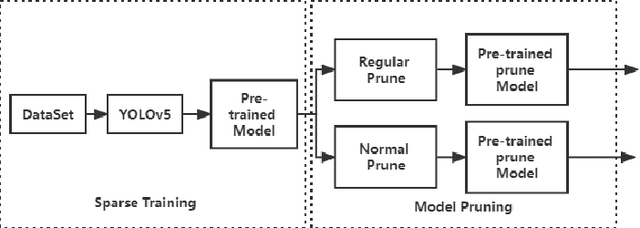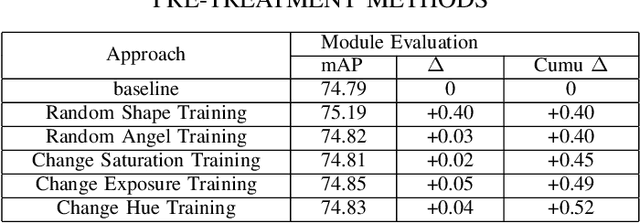Keyu Qiu
Channel Pruned YOLOv5-based Deep Learning Approach for Rapid and Accurate Outdoor Obstacles Detection
Apr 27, 2022



Abstract:One-stage algorithm have been widely used in target detection systems that need to be trained with massive data. Most of them perform well both in real-time and accuracy. However, due to their convolutional structure, they need more computing power and greater memory consumption. Hence, we applied pruning strategy to target detection networks to reduce the number of parameters and the size of model. To demonstrate the practicality of the pruning method, we select the YOLOv5 model for experiments and provide a data set of outdoor obstacles to show the effect of model. In this specific data set, in the best circumstances, the volume of the network model is reduced by 49.7% compared with the original model, and the reasoning time is reduced by 52.5%. Meanwhile, it also uses data processing methods to compensate for the drop in accuracy caused by pruning.
 Add to Chrome
Add to Chrome Add to Firefox
Add to Firefox Add to Edge
Add to Edge